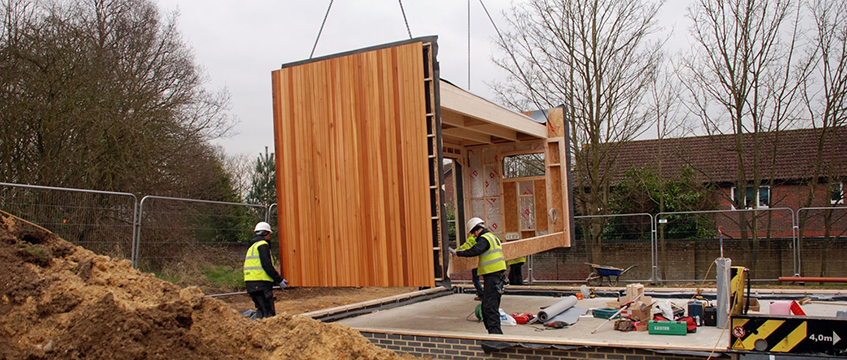Real estate heavyweights have urged the government to create a “level playing field” and give “greater clarity” to the industry as it looks to improve the sustainability credentials of new-build homes.
The call went out as part of a second report from the Building Back Britain Commission, which is making recommendations to the government on housing strategy and members of which include Barratt Developments chief executive David Thomas and Legal & General chief executive Nigel Wilson.
In the paper, the commission explored the challenges of taking “a greener approach” to new-build housing, highlighting that one in five of the homes that will exist in 2050 has yet to be built.
“The average new-build home now emits more than two tonnes less of carbon each year than the average existing home and consumers are feeling the benefits with significantly lower energy bills,” the report said. “However more still needs to be done to remove constraints and enable the transition to net zero to happen at the scale and pace required. In the years ahead, partnership with government on key areas of policy will be critical in advancing net zero ambitions and encouraging more developments designed to include facilities and infrastructure that support communities to adopt more sustainable lifestyles.”
Commission chair Terrie Alafat, who is also chair of Riverside Group, said action to “support pioneering net zero developers” would ensure “the homes we build today do not become the retrofit projects of the future”.
The report highlighted modern methods of construction as a solution for cutting embodied and operational carbon emissions and speeding up delivery while addressing skills shortages in the construction industry.
It said MMC factories can be optimised to minimise material waste below 1% of the total, whereas in traditional construction the figure is 18%-22% and that modular-delivered homes offer a large improvement in embodied CO2 – research from Heriot Watt University found that just one building saved the equivalent CO2 to planting 160,000 trees.
The commission said developers were taking up arms to hit 2030 net zero targets, they are moving ahead with heat pump strategies and accelerating plans to be carbon neutral in construction.
But it added that developers require greater clarity on the government’s roadmap to lower carbon emissions and a fairer playing field in which companies shunning their responsibilities cannot gain a competitive advantage.
“The danger is one of a terrain in which firms who have not set such ambitious targets are able to feed less cost into their models, enabling them to buy more land,” the report said. “By sending out a clear and direct message – such as already exists in the automotive sector where the UK plans to ban the sale of new petrol and diesel cars by 2030, and hybrids by 2035 – the government could level the playing field and help to ensure that there are no adverse commercial consequences for those developers who commit to ambitious net zero targets.”
To send feedback, e-mail akanksha.soni@eg.co.uk or tweet @EGPropertyNews











